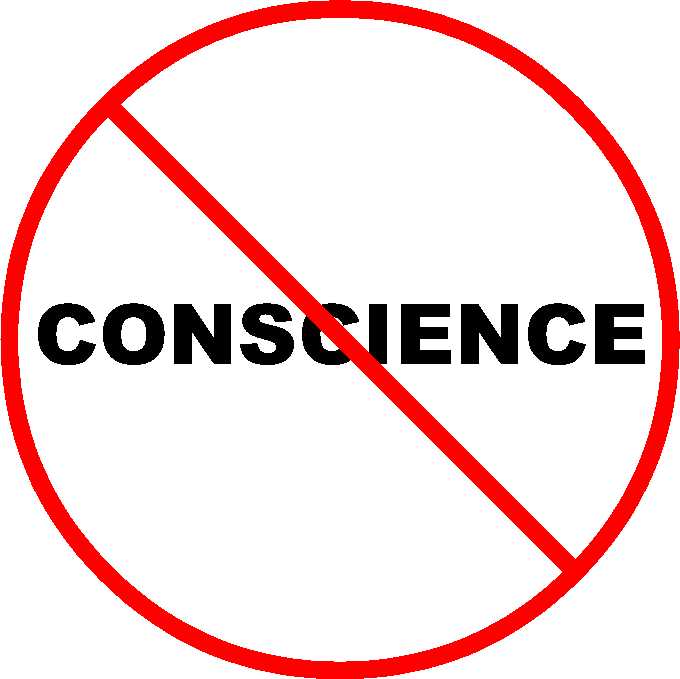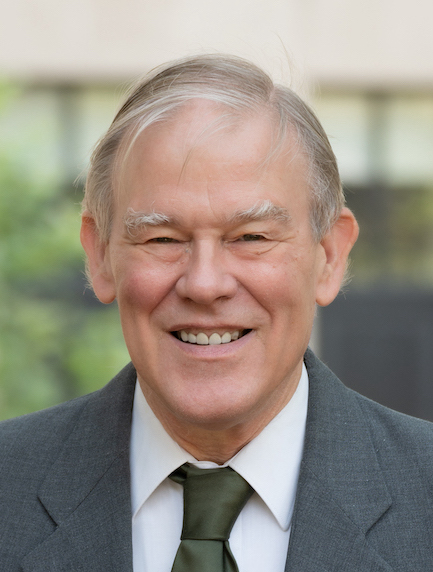Earlier articles reviewed the basic features of the proposed Equality Act, and its disastrous consequences for American society, especially for those involved in the health professions. This article will attempt to assess the basic philosophy of the proposed law.
It is commonly observed that there is no practical need for the law. Support for homosexuality and now, transgenderism, is widespread in American society, and is advanced by American institutions. Isolated cases of conscientious objection on the part of those who service the wedding industry or printers who will not reproduce messages that they don’t agree with do not seriously inconvenience people. In the rare case where someone is seriously inconvenienced, most people in previous generations would have recognized that it is simply morally repugnant to require action against conscience.
The Religious Freedom Institute, in its statement opposing the proposed legislation, observed that the root problem is with the nature of “sexual orientation” and “gender identity” as protected “identities.” It might be added that any protected class or “identity” established in law already amounts to an inequality in law. To be a special, protected class is, after all, to enjoy a privilege. One may decline to provide goods and services, employment, housing, or take an adversarial action in an organization for many reasons, but not on the basis of a prohibited criterion (i.e., race, color, religion, etc.). The inequality the law establishes is supposed to rectify a previous unjust inequality. All civil rights (antidiscrimination) law really presupposes that widespread public judgment was wrong, and the government knows better (really those who were able to prevail in government know better). It takes decision making away from private parties and gives it to the state.
This writer has argued that only race is an acceptable prohibited criterion, since only race is a superficial difference among human beings, and can be treated as equal. Sex (despite feminist doctrine) really is not equal, still less so is religion, which involves incompatible doctrines. Unlike sex, religion need not be immutable for individuals over time. But sexual orientation and gender identity are inherently unstable because they are self-defined. No physical basis for homosexuality has been found (after years of searching for a “gay gene”), nor would any basis really be wanted, because then it might be possible to restrict individual rights based on a physical determination of sexual orientation.
But it is “what is wanted” that is the true criterion of sexual orientation and gender identity (SOGI) laws. The progression from homosexuality to transgenderism clearly shows this. Just as the desire of people for sexual activity with members of the same sex was the basis for the homosexual revolution – so the wants of people who believe they are in the “wrong body” is the basis of the transgender revolution. The true principle is lawlessness, which the Scripture defines as sin. This radical self-determination is immediately in conflict with religion in general, which binds people based on a claimed apprehension of ultimate reality. But people must be bound by something in order to live together. It is only liberal sensibility that tells those who make public opinion that religious sexual restrictions are wrong. The same sensibility that declares that the danger of tobacco smoke makes smoking wrong also indicates that the social disintegration and health hazards of the sexual revolution can be set aside in view of the suffering of people whose lives deviate from the union of male and female in a natural family.
As RFI so clearly stated:
“LGBTQ identities … have the potential to implicate moral teachings in ways that other protected classes, such as race, ethnicity, and national origin, do not … SOGI laws, of which the Equality Act would be the preeminent expression, also communicate a pernicious message to society that the traditional sexual morality taught by Islam, Judaism, and Christianity is bigoted, and akin to racism … SOGI laws and the cultural message they send exact tremendous harm on religious Americans and their institutions …Though anti-discrimination laws are sometimes necessary, they are a major government intrusion into the private lives of citizens and institutions. …One might take only a cursory look across American society to see that major players in higher education, Hollywood and entertainment, news media, corporate business, collegiate and professional sports, social services, and government at all levels have proven willing, and even eager, to affirm and celebrate LGBTQ people and understandings, and to marginalize those unwilling to get on board. Grounds for the Equality Act and similar legislation are simply not there. Far from justifying the Equality Act, the conditions in American society today call for a recommitment to protecting the religious freedom of those whose views on human sexuality and gender diverge from the emerging consensus on these matters.”
While this analysis is dead on the mark, the objective of the radical left is not to give equal protection to all citizens, but to radically transform society by pressing the needs and wants of minorities (which are very small, in the case of the SOGI minorities) against a satisfied majority. This was the strategy of Herbert Marcuse, arguably the dominant thinker in the current cultural revolution, and it is proving devastatingly effective.
RFI board member Mary Rice Hasson, in her testimony against the legislation on March 17, pointed out its attempt to regulate ordinary life “wherever Americans ‘gather,’ even virtually. Churches, synagogues, temples, faith-based schools, soup kitchens, and shelters for battered women will be subject to government coercion pressuring them to compromise their religious beliefs or risk endless litigation.” Incredibly, today’s social radicals are endeavoring to radically control American life to prohibit true sexual distinctions, and put self-assertion in charge. Equally troubling is the attempt (also noted in the discussion below) to make statutory law nullify constitutional law by “inserting language that attempts to tip the scales against believers if they assert claims under the First Amendment or Equal Protection.”
Inescapably, the Equality Act is an attempt to pass judgment against religious doctrine. This is clear in a recent post by Albert Mohler, President of the Southern Baptist Theological Seminary, in which he notes a recent Washington Post editorial saying that the state must ensure that “activities occurring in the public square are fair and equitable.” While Mohler correctly reiterates the theme orthodox Christians have pressed for years – that religious practice cannot be confined to the four walls of a church – just as alarming is the claim that the state may judge that religious precepts are “unfair and inequitable.” But that judgment is really the heart of the Equality Act. The legislation is clearly attempting to act as an instructor to the American nation that traditional religious sexual morality (which is by no means unique to Christianity) is cruel and immoral.
As Mohler pointed out in another post, the apparent strategy in implementing the Equality Act will be for the government to define what acceptable religious doctrine is. He notes the statement of the bill’s lead sponsor, Congressman David Cicilline (D.-RI), that under the proposed law the government would determine whether the actions taken by religious organizations “are connected to their religious teachings and to their core functions as a religious organization” or are “a pretext to discriminate.”
It is obvious that in any adverse judgment by a religious organization against homosexuality or transgenderism that is challenged in court, the claim of the plaintiffs will be that teaching against homosexuality or transgenderism is inauthentic. This is an insidious argument, because to protect religious liberty, it is necessary for the government to judge what religious doctrine is, but not to evaluate it. An Orthodox Jew, Seventh Day Adventist, or Seventh Day Baptist would have a reasonable claim not to work on Saturday – a Roman Catholic or Southern Baptist would not. But Biblical and other religious texts condemning homosexuality and transgenderism are clear. They should be accepted as the claim to divine revelation that they are, not evaluated as bad teaching and pronounced inauthentic (i.e., not the correct understanding of the text).
A very clear eyed analysis of the savage anti-religious logic of the Equality Act, and the even more explicitly anti-religious Do No Harm Act, was recently laid out in a First Things article by attorney and author Kenneth Craycraft of Mount St. Mary’s Seminary. He highlights the attempt of the law to make destructive medical procedures such as the killing of unborn children (abortion), or sexual mutilation surgery, administration of opposite sex hormones and puberty blocking drugs (“sex transition”) into something positive (“health care”), and then accuse religious conscience objectors of “discrimination” by refusing to perform or be complicit in these procedures. H.R. 5 specifically repeals the Religious Freedom Restoration Act (RFRA) in any case to which the the Equality Act applies. Although RFRA is only a balancing test, with no predetermined outcome in any case, the point is to leave religious objectors to liberal policies with no defense. In this way RFRA is made to apply where the Left wants it to apply (to groups they consider oppressed minorities), and not where they don’t want it to apply (sexual morality).
Craycraft’s observes that the Equality Act follow-up legislation, the Do No Harm Act (H.R. 1450) attempts to nullify religious freedom on any topic on which the Left would disagree with it. The linked summary of the bill shows that RFRA is made inapplicable to laws concerning civil rights, labor activity, any “health care item or service” (read abortion and “sex transition”), involve complicity in providing religiously objectionable goods and services from the state, and prohibits the use of RFRA as a defense against private lawsuits (as might be done in defenses offered by bakers, florists, and photographers where federal law burdens religious belief).
The very name, “Do No Harm Act,” implies what the Left passionately believes, that certain religious beliefs and practices are harmful. Specifically, those that interfere with the state’s estimate of the good life. It attempts to use the “dignity” justification for overruling religious liberty (and in particular the Masterpiece Cakeshop decision). Masterpiece Cakeshop was a constitutional decision beyond the reach of statutory law. But Craycraft believes that the Do No Harm legislation is an attempt to make an end run around the most important religious liberty decision of recent years, the Hosanna Tabor decision. That decision said antidiscrimination law cannot apply to religious “ministers” (clergy and instructors in religious schools, as the Our Lady of Guadalupe decision clarified). Apparently the proposed law does this by saying that there can be no exceptions to antidiscrimination law that apply to people who do not agree with the beliefs being protected. But again, this is statutory law attempting to overturn constitutional law. More basically, a right that exists only if other people agree with its exercise is no right at all.
The real heart of both bills is surely contained in the mandate the religious freedom cannot apply in any case where someone disagrees with the religious doctrines being protected by religious freedom. It is heard ad nauseum in the Left’s assertion that religious believers are “imposing” their beliefs on other people by religiously mandated action or inaction. But it is quite obviously the person or corporate body required to take an action he or she understands to be sinful or evil who is being imposed on, not the person requiring action. The “imposing your beliefs” accusation stems from humiliation or annoyance at religious condemnation of particular sexual desires and behaviors. But this amounts to a right not to be offended or pained, and the right not to be offended is really a right to tyranny. We cannot all have everything we want, and personal pain is not a reason to impose our wishes on others.
Peter Jones of Westminster Seminary in California has observed that the Equality Act is the legal outworking of monism, which denies differences (although now it is advanced in the name of diversity). It denies the distinction between creator and creation, and eventually all other dualisms (truth and falsity, right and wrong, humanity and non-human animals, parent and child, citizen and foreigner, etc.). Contrary speech and action will be suppressed, if possible.
People have a very reasonable desire to know that their life is righteous, and have that reflected in the world around them. But it cannot merely be an act of will, which the Equality Act and Do No Harm Act make it. It must be based on truth and reality. To know that your life is ultimately righteous is to know that it is in agreement with ultimate reality. Evangelicals call this “assurance of salvation.” Secularists cannot have it, because they do not believe in an ultimate reality that is personal.
If the bill passes, many more Christians will have the opportunity, as Jack Phillips and others have already had, to show their loyalty to God, not to the state. Much litigation and appeal to the Supreme Court, citing the First Amendment will surely follow. The court will have the opportunity to overturn the Employment Division vs. Smith decision (1990), which declared that there is no constitutional right to religious freedom against generally applicable law. But the Supreme Court is not notable for its courage in saying no the tears of the Left.
If H.R. 5 does not pass, we now know, from past experience with SOGI laws, and from the totalitarian sweep of this proposed law, what the Left will do if it has the power. The “parade of horribles” offered against SOGI laws are not slippery slope scare tactics, but realities now experienced, and which will be increasingly experienced to the extent that the SOGI regime succeeds.
True Christianity is simply being made illegal. The path ahead will be spiritually and materially difficult, but it is the narrow path to life, that we must follow to obey God.






Comment by David Stewart on April 1, 2021 at 12:16 pm
What is telling about all this is where most mainline denominations stand on these pieces of legislation by refusing to stand for the religious liberty of conservative Christians. I believe it was recently highlighted by IRD that many a mainline denomination has publicly come out in support of either the Equality Act, Do No Harm, or both. The leadership of those that have not publicly done so, such as the PC(USA) and possibly UMC, more than likely privately support it as evidenced by previous resolutions, statements and such against religious liberty, usually in scare quotes, at their respective national meetings; articles in denominational publications (especially when authored by denominational employees); and amicus curiae filings on cases with religious liberty overtones, such as appellate filing in the Philadelphia Catholic Charities case, opposing Catholic Charities. So much for their claims of only wanting Christian love and unity.
Little do they realize that by siding with their Constantine, even as the decry the Constantinian settlement in general, the tables could eventually turn on them, if they ever run afoul of the radical left’s orthodoxy. And it is only a matter of time before they do run afoul of the leftist orthodoxy.
Comment by Diane on April 3, 2021 at 11:48 am
The Equality Act impacts those who operate businesses with the benefit of our tax dollars. Every citizen should be afforded service from these tax-funded entities.
Having lived in a state that passed lgbtq-equality, non-discrimination laws, I fail to see the downside of them. There simply wasn’t a problem after they were passed – if one was discriminated against in the public sphere, these laws allow legal recourse. Further, religious rights were not in jeopardy with these laws in place. The two Catholic-run hospitals near my home were privately financed, though they would not survive without patients’ Medicare and Medicaid payments. Bottom line, they are faith-based, non-tax-supported healthcare businesses that do indeed have the right of religious conscience to discriminate. And yes, their religious doctrine dictates which services are denied. Patients have no recourse when religious doctrine is denied. They simply have to seek healthcare elsewhere – which can be a huge hurdle and inconvenience. As a senior citizen, I alerted my family members that I did not want treatment in a Catholic-run hospital. I avoided the OB-GYN reproductive healthcare doctor’s associated with the Catholic hospital. Some women like myself choose to avoid Catholic hospitals (where doctrine supersedes reproductive healthcare choices), as do LGBTQ folks (where doctrine can ignore one’s marital status), and senior citizens (where doctrine can supersede end-of-life medical treatment wishes).
Comment by Rick Plasterer on April 3, 2021 at 1:51 pm
Diane,
It’s good if you believe that “faith-based, nontax supported” religious health care institutions “do indeed have the right of religious conscience to discriminate.” Perhaps I don’t understand all that’s involved with the proposed law, but the section I quoted in the first article in this series pointed to Sec. 3(a)(2)(c)(4) of the legislation, which covers seemingly everything open to the public, including specifically “any … establishment that provides health care.” There is no mention of tax dollars. Religious health care facilities are generally open to the public, so they would be required to perform abortions and sexual anatomy altering surgery.
Another point which has also been made by other critical comments to my articles is that sexual orientation and gender identity laws have been on the books for years in more liberal jurisdictions and society seems to go on, including for religious persons and institutions there. This ignores, first, as I pointed out in the first article that the old state SOGI laws had generous exemptions for religious institutions. The Equality Act has none, and specifically targets the religious conscience in repealing RFRA where it might apply to the Equality Act. Also, the radical impact of the SOGI regime is only now being felt, in the threat to women’s safety and protections in public rest rooms, sports, prisons (where female inmates are attacked by biologically male inmates who identify as female) and shelters for homeless and abused women where biological men must be accommodated (according the the Equality Act). My critical commentator David remarked in responding to the second article in this series that he didn’t agree that biologically intact men should be allowed in rest rooms reserved for women. I responded that that is irrelevant. The proposed Equality Act requires it.
Rick
Comment by Diane on April 3, 2021 at 8:03 pm
Rick,
I have no doubt that faith-based healthcare entities that are financed privately will continue to operate freely, as they always have. Churches have never been required to hire clegywomen, for example, and won’t under the Equality Act.
In the future, however, what recourse will heterosexual/straight people have when discriminated against based on their sexual orientation? Without the Equality Act, that becomes perfectly legal, as it is now.
Several times in my teaching career I had the power to persuade which educator would be hired. Qualifications being equal, I happen to believe minority groups often are denied opportunities for advancement. I also believe diversity of life experiences brings a richer educational environment. When there were two equally qualified candidates for principal, I advised hiring the one I knew to be part of a a minority population (in this case, he was gay). When there were two equally qualified candidates for teacher assistant, I encouraged the hiring of African American woman instead of the White woman.
Diversity in the workplace is seen as a plus by the younger generation. In one “big box” store in my community, the manager told me he intentionally works to add diversity among his employees. He’s hired transgender and lgbtq folks.
As a consumer, I spend my money in stores where there’s a commitment to diversity. I buy furniture and household decor at a national chain that’s working to add more people of color in management positions, as well as lgbtq folks.
Now that it’s not permissible to discriminate in employment in re to sexual orientation and gender identity, the status quo might find themselves being overlooked, discriminated against now and in the future. Straight folks won’t have legal recourse to claim discrimination based on sexual orientation without equality laws. I’m guessing you’re not opposed to discrimination of straight folks based on sexual orientation?
Comment by td on April 5, 2021 at 11:05 am
Diane, thank you for confessing that you yourself knowingly and intentionally choose to discriminate based upon race and sexual preference when hiring someone.
While diversity, as you describe it, can be an asset to an organization, it is, in itself, not a virtue and has no moral signifigance.
Comment by Rick Plasterer on April 5, 2021 at 1:14 pm
Diane,
I’m not opposed to private discrimination against non-LGBT identifying people. As I have said before, discrimination is the freedom to choose. To demand “recourse” against a private decision one doesn’t like is to demand that the state overrule personal freedom in favor of the plaintiff. What “recourse” do Jack Phillips and other traditional religious believers have when required to violate their religious precepts in the course of their work? It is the religious conscience objector, who is being required to take action he or she believes to be sinful, who is being imposed on, not the party demanding action. The Left refuses even the Religious Freedom Restoration Act, which is only a balancing test, in which judges are permitted to assess the relative legal worth of conscience claims against contrary claims. The Left demands that judges be compelled to rule against the religious conscience objector in all claims related to sex (or wherever its legal regime declares that religious beliefs inflict “harm”).
Rick
Comment by Diane on April 5, 2021 at 7:53 pm
Rick, you asked what recourse do business owners have with traditional beliefs under the Equality Act. If they can’t serve certain customers in good conscience, they can set themselves up as a bonafide religious entity, find another vocation, etc. Would they lose financially? Perhaps. Many private religious schools finally decided to racially integrate (even though they believed the mixing of races was not God’s intention) because not to integrate would cost them dearly in tax dollar support. Until the Civil Rights Act, they believed themselves entitled to faith-base discriminate and still collect our tax dollars.
Comment by Jeff on April 6, 2021 at 5:02 pm
>> If they can’t serve certain customers in good conscience, they can set themselves up as a bonafide religious entity, find another vocation, etc.
“Congress shall make no law respecting an establishment of religion, or prohibiting the free exercise thereof.”
Prohibiting the free exercise of my Christianity by threatening to force me out of my vocation is a first amendment non-starter! What part of that don’t you get, Diane?
Comment by Rick Plasterer on April 6, 2021 at 5:28 pm
Diane,
In my first article in this series, I quoted sections of the legislation that list the public accommodations covered, and it appears to be most or all public services. Nowhere in the act (linked to at the beginning of the article) do I see a reference to tax dollars. State support is not the criterion for applying the law, service to the public is. So religious institutions cannot offer services to the public without being bound by the law, nor could a private business avoid the law simply by declaring itself religious. As I noted in that article, an inventive understanding of “service” open to the public could include even a religious service. I have noted in recent articles the new LGBT effort (made the the U.N. Special Rapporteur for Religious Freedom and Belief, and proposed laws in Canada and the U.K.) to require religious bodies to accept homosexuality and the sexual revolution more generally. “Separation of church and state” will not work on this issue.
Rick
Comment by Rick Plasterer on April 6, 2021 at 5:35 pm
The next to last sentence in my above comment should read “made by the U.N. Special Rapporteur for Freedom of Religion and Belief.”
Comment by Diane on April 6, 2021 at 11:29 pm
Rick, bottom line for myself and many others is the Golden Rule…do to others what you’d have them do to you. You and I clearly disagree on what that means. I enjoyed living in a state where it’s non-discrimination laws included protections of lgbtq folks. The laws reflected my Golden Rule values.
Comment by Rick Plasterer on April 8, 2021 at 10:26 pm
Diane,
While I don’t want to go on and on with replies, I try to practice love of God and neighbor. So I cannot be complicit in what his Word declares to be sin, nor would I require others to violate their consciences. So I would not insist, for instance, that a socially liberal or LGBT identifying printer print material for an ex-gay organization.
Rick